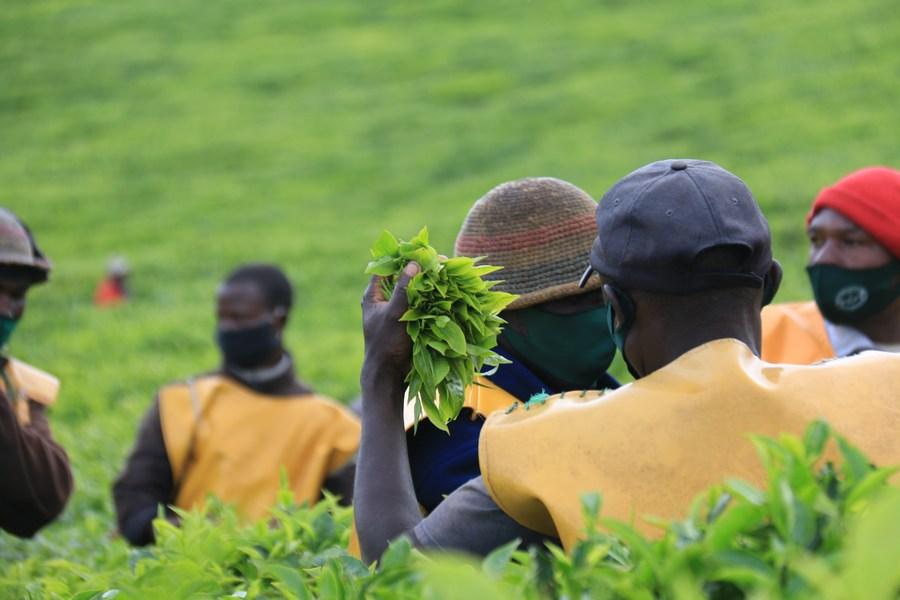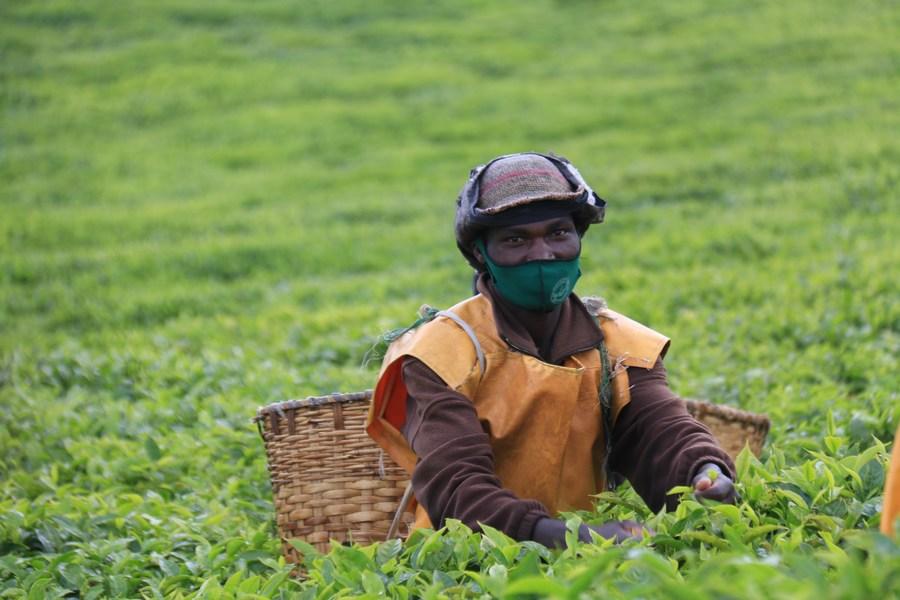
The file photo shows farmers picking tea leaves at a tea garden in the Gisakura area, Rwanda, on Sept. 18, 2021. (Xinhua/Ji Li)
In the lush landscapes of the Rambura sector, Nyabihu District in Western Province of Rwanda, tea picking has evolved beyond a mere profession; it has become a lifeline for individuals like Marceline Mukamana, a resilient single mother of three.
In the lush landscapes of the Rambura sector, Nyabihu District in Western Province of Rwanda, tea picking has evolved beyond a mere profession; it has become a lifeline for individuals like Marceline Mukamana, a resilient single mother of three.
"I work as a tea picker, and picking tea serves as my primary source of income. It enables me to cover health insurance expenses and purchase essential items such as food, clothes for my children, and other household necessities," Mukamana told Xinhua in a recent interview.
Mukamana is just one among thousands of individuals whose lives have been positively transformed by the thriving tea industry in Nyabihu District.
Located in Western Province, the Nyabihu Tea Factory stands as a testament to the significant impact the cultivation and processing of tea leaves have had on the local community.
"I have dedicated 12 years to this tea-picking profession, and it has allowed me to achieve various milestones, such as buying a cow," Mukamana continued, her eyes reflecting the pride of the accomplishments made possible through the tea fields.
Joining Mukamana in this tale of resilience is Jean Baptiste Rukiramacumu, another dedicated tea picker at the Nyabihu Tea Factory.
"Pursuing a career in tea picking has facilitated several accomplishments. For instance, I have been able to acquire a piece of land and construct a house. Additionally, I have bought two cows. The income generated from tea picking enables me to cover school fees for my children, purchase school supplies, and provide clothing for them," he explained.
Beyond personal achievements, Rukiramacumu emphasized how the financial gains from tea picking contributed to his ability to invest in agriculture.
"The income plays a crucial role in supporting my daily activities that require financial resources," he added, highlighting the transformative impact of tea cultivation on rural livelihoods.
The driving force behind this positive change is the Nyabihu Tea Factory, guided by the vision of Director General Yves Mungwakuzwe.
According to Mungwakuzwe, the factory processes tea from both its own fields and those of tea farmers who are part of a cooperative.

The file photo shows a farmer picking tea leaves at a tea garden in the Gisakura area, Rwanda, on Sept. 18, 2021. (Xinhua/Ji Li)
The cooperative approach not only fosters a sense of community but also enhances the overall productivity of the tea industry in the region, he told Xinhua.
"There are plans to expand tea cultivation by collaborating with tea farmers, assisting them in processing tea seedlings over a 15-month period. The recent harvest yielded 7.5 million leaves, resulting in a marketable output of 2,016 tonnes," said Mungwakuzwe.
He emphasized the factory's commitment to maintaining high-quality standards, evident through certifications like the Rainforest Alliance certificate and ISO 2022 international standard certificates.
The seal of the Rainforest Alliance certificate means that the certified ingredient was produced using methods that support the three pillars of sustainability: social, economic, and environmental.
The strategic planning of tea cultivation, incorporating environmental conservation measures, has not only led to a strong domestic market presence but also enabled international exports, according to Mungwakuzwe.
He said the tea from Nyabihu is available in most supermarkets in the country, with direct exports reaching China, Europe, America, and other global regions. The ripple effect is felt in the local economy, as the factory provides permanent employment opportunities to more than 5,000 individuals, according to him.
Tea remains one of Rwanda's top agricultural export revenue earners. In 2021, Rwanda earned more than 96 million U.S. dollars from exporting over 35 million kg of tea compared to over 32 million kg sold for more than 90 million U.S. dollars in 2020, according to data from the National Agricultural Export Development Board.